International Non-Binary People’s Day – Step up as an ally
Stonewall shares 10 ways to step up as an ally to non-binary people. Step up as an ally to non-binary people
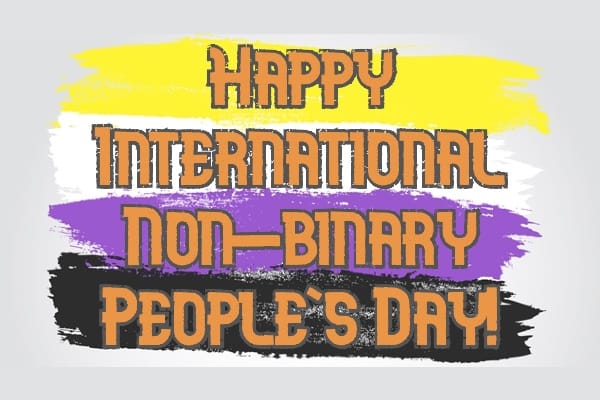

Today is International Non-binary People’s Day, which aims to celebrate the wide range of people worldwide who identify as non-binary. But do you know what it means to be non-binary? And do you know how you can better support non-binary people? Stonewall, the charity which campaigns for the equality of LGBTQ+ people across Britain, has come up with some ideas!
Let’s start with the basics – what does non-binary refer to?
Non-binary is an umbrella term for people whose gender identity doesn’t sit comfortably with ‘man’ or ‘woman’. Non-binary identities are varied and can include people who identify with some aspects of binary identities, while others reject them entirely.
Non-binary people can feel that their gender identity and gender experience involves being both a man and a woman, or that it is fluid, in between, or completely outside of that binary.
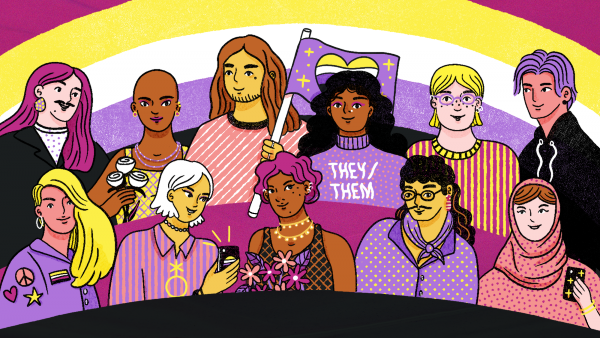
Is non-binary the same as trans?
No. While the term trans generally encompasses people whose gender is not the same as, or does not sit comfortably with, the sex they were assigned at birth, some non-binary people don’t see themselves as trans. It’s always important to respect the language someone uses to define themselves.
Trans people may describe themselves using one or more of a wide variety of terms, including (but not limited to) transgender, transsexual, gender-queer (GQ), gender-fluid, non-binary, gender-variant, crossdresser, genderless, agender, nongender, third gender, bi-gender, trans man, trans woman, trans masculine, trans feminine and neutrois.
Gender identify vs gender expression
In order to understand non-binary gender identities better, it’s vital to understand the difference between gender identity and gender expression.
Gender identity refers to a person’s clear sense of their own gender. This is not something which is governed by a person’s physical attributes. Gender expression is how you express yourself and just like the rest of society, non-binary people have all sorts of ways to express themselves and their identity. They can present as masculine, feminine or in another way and this can change over time, but none of these expressions make their identity any less valid or worthy of respect.
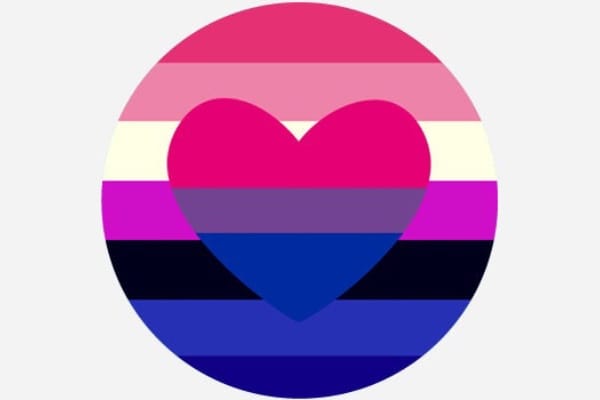
What can I do to step up as an ally to non-binary people?
There are many ways to be inclusive of everyone, regardless of their gender identity. Our language and the way we speak is often embedded with hidden gendered cues.
Once we start to notice them, we can move towards using language that’s inclusive for all. Here are 10 tips you can start using right away:
- Introduce yourself with your name and pronoun. Stating your pronouns reminds people that it might not always be immediately obvious what pronoun someone uses
- Put your pronouns in your email signature or social media profile
- Instead of addressing groups of people with binary language such as ‘ladies and gentlemen’, try more inclusive alternatives such as ‘folks’, ‘pals’ or ‘everyone’
- Use words that define the relationship instead of the relationship and gender. For example, use ‘parents’, ‘partner’, ‘children’ or ‘siblings’
- Not everyone is comfortable with gendered titles such as ‘Ms’ or ‘Mr’. Titles are not always necessary, but if they must be used it’s good to provide alternative ones such as ‘Mx’ (pronounced mix or mux)
- Use the singular ‘their’ instead of ‘his/her’ in letters and other forms of writing, i.e. ‘when a colleague finishes their work’ as opposed to ‘when a colleague finishes his/her work’
- Not everyone necessarily uses ‘he’ or ‘she’ pronouns and it’s important to be respectful of people who use different pronouns. The most common gender-neutral pronoun is the singular ‘they’ (they/them/theirs). Using people’s correct pronouns shows that you respect them and who they are
- Using the pronoun ‘they’ is very useful when someone’s gender or identity is unknown. You will often already be using it without realising, i.e. ‘somebody left their hat, I wonder if they will come back to get it’
- Make sure that your workplace, school and college policies and documents use inclusive language, i.e. using ‘they’ instead of ‘he/she’ and avoiding sentences that imply two genders. Where specifically talking about gender identity, make sure it is inclusive of non-binary gender identities and not just trans men and trans women
- When highlighting LGBTQ+ people in your events or as role models, make sure you include some non-binary role models tooIt may take a bit of getting used to, but it causes you no harm and it will make that person feel acknowledged and valid.
Most of this article is an excerpt from one of Stonewall’s school resources Celebrating Difference and Building Belonging, written in collaboration with Owl Fisher, a non-binary activist and film-maker.
For more information on Stonewall, visit their website.
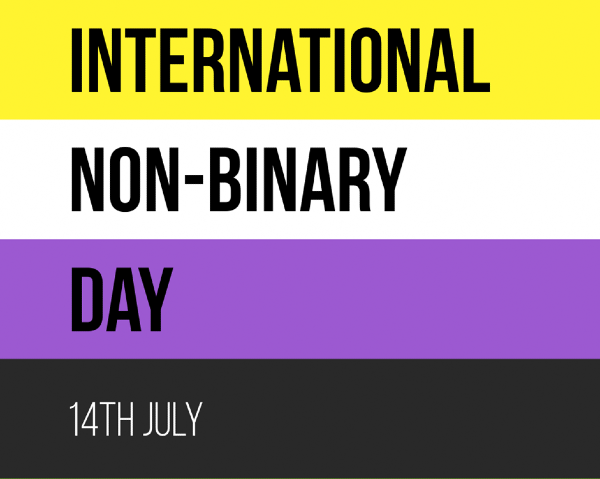




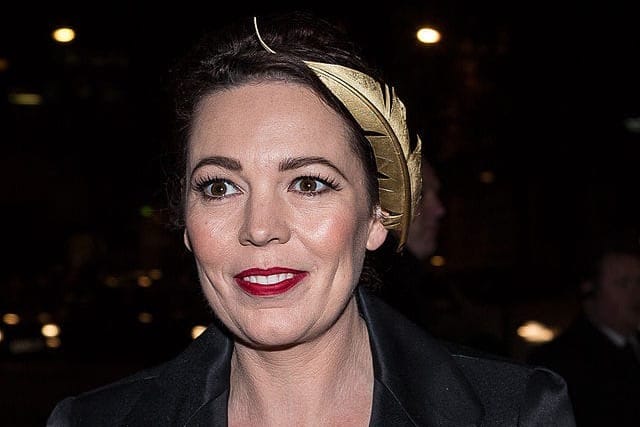
Comments ()